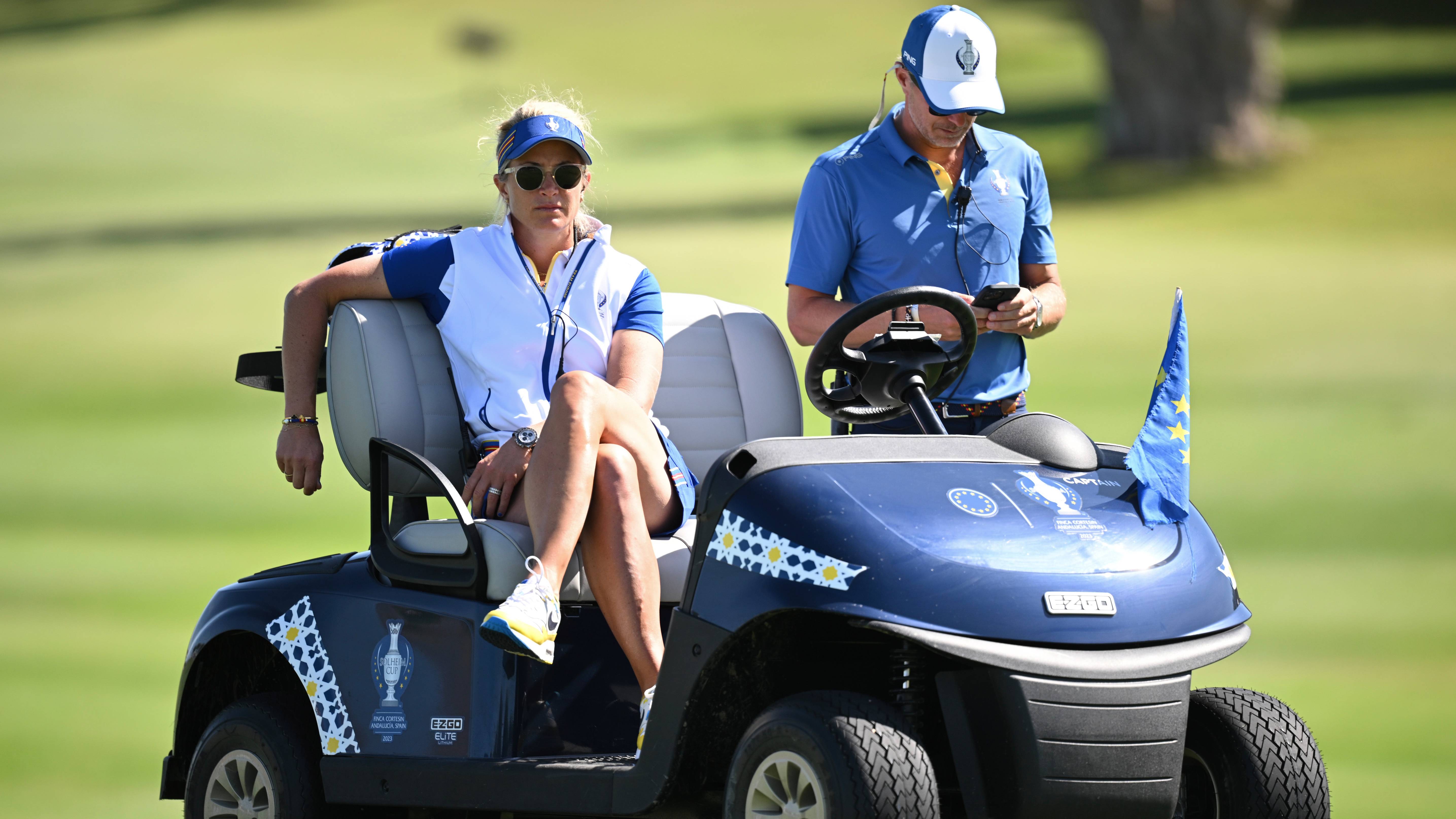
Walking up the fairways of the Dundonald Links in the Freed Scottish Women’s Open last summer I distinctly remember asking European Solheim Cup rookies Linn Grant and Gemma Dryburgh what they thought Suzann Pettersen would be like as a captain and how important her role in every aspect of the team result would be. They both shared the same resounding sentiment, that the team captain is the glue that holds everything together.
A great captain gets the team room buzzing with positivity, they keep moral high, they make decisions with diplomacy, ensuring discussions are had with the vice-captains, advisors and players opinions are sought. They are the key organisers and are able to deal with any unexpected issues or situations that arise calmly. They can also handle stress! A great captain brings the fun to the team, putting their heart and soul into the role. It could be argued that the win/lose result essentially rides on their shoulders.
The European Solheim Cup team players were unanimous in their praise of Pettersen’s magnificent leadership in last year’s Solheim Cup victory. Although a club team captain is nowhere near the pressure-packed role of a major global competition like the Solheim Cup, the traits of a good captain are nevertheless the same. Here are just a few suggestions of the key characteristics a good captain must possess.
Be Organised
I captained my club team to victory in our scratch inter-club knockout competition a few years ago so I know full-well how time-consuming the captain’s role can be. You have to be an organisational whizz, communicating with potential team players via phone or email. Then you have to chase up replies, find a reserve and get the match dates booked in. You also have to communicate match date choices with the opposition captain. There’s match tea orders to consider, travel arrangements for away games to plan and results to compile, announce or send off.

A Great Communicator
From the pre-match organisation to the post-match results, a good team captain needs to be a capable and confident communicator.
At Solheim Cup level the captain is expected to take to the stage in a mass public arena and speak, inspiring her players and her fans. She is also expected to deal with the mass media, answering endless questions in interview.
To be a great captain you need to be diplomatic. You have to speak frankly with the players you leave out and be confident in the ability of those you play. Telling your team the order and any other arrangements for the day.
At club or county level captains are often expected to give a speech of thanks after the matches are completed.

An Excellent Decision-Maker
A captain’s main job is to select team players. At Solheim Cup level they have a committee to consult for advice and opinion but ultimately, no different from a club match, it comes down to the captain to choose who plays in their team. The captain’s picks can be quite controversial and even at club level there can often be politics involved, captain’s picking their favourite friends rather than the ones who are necessarily playing the best golf on paper.
Once they’ve picked their team, the decisions don’t stop there. In the Solheim Cup they have the fourball and foursomes pairings to consider. Even in county matches finding the right foursomes partnerships can often be tough.
Last, but by no means least, deciding what order to put your players out in. This is a tricky decision if the matches involve shots as you need to decide whether to top load the draw with your star players - the seasoned match play veterans who are most likely to get the win - or tactically hide these players lower down the list to try to “guarantee” their point.
There’s a long-standing joke at our club that if you asked to tee off in the first match you’ve been chosen as the “sacrificial lamb”. This is especially true if you are the highest handicapper on paper playing in a scratch match.

Possess The 4 Cs: Calm, Compassionate, Caring, Consistent
Calm: Being named a team captain is an honour. The position is given to the person who is perceived to be someone that the players will respect and trust. However, with the honour also comes responsibility. A captain must be accountable after a bad performance or match result. Captains are expected to lead the team to victory. Most importantly captains are expected to stay calm in the most pressurised situations.
Compassionate and Caring: Great captains should be passionate about the team they are leading. They should put the success of the team ahead of their own needs. A caring captain should treat all teammates with respect and recognise their contribution to the team, win or lose. If a player has a problem with a fellow teammate it is the captain’s job to mediate, approach them in private and find a positive way to address the situation and find a solution. The captain should help ensure that everyone on the team is happy to ensure great team chemistry.
Consistent: Effective captains need to be the model of consistency in their approach and actions. That means being efficient with planning and giving 100% effort in every practice match and game. There’s no cutting corners. To earn the respect from your team players you need to be consistent in the way you lead your team. The consistency can take the form of actions or words. The most important thing is that you are true to your own style of leadership and don’t change it.







